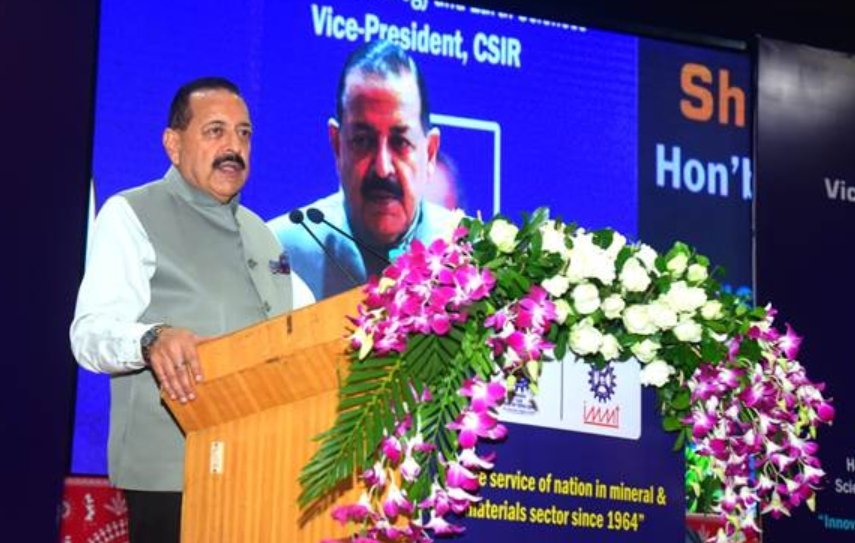Govt launches Phenome National Conclave on Longitudinal Cohort Studies for diabetes
November 13, 2025 | Thursday | News
Minister highlights metabolic disorders as a major national health challenge
image credit- pib
Union Minister of State (Independent Charge) for Science & Technology Dr Jitendra Singh launched "Phenome National Conclave on Longitudinal Cohort Studies: Cohort Connect 2025", at CSIR–Institute of Minerals and Materials Technology (CSIR-IMMT), Bhubaneswar, on 13 November 2025.
Cohort Connect is said to be India’s largest evidence-based study on genetic, lifestyle and environmental drivers of diseases.
Delivering the inaugural address, Dr Jitendra Singh said that the discussion taking place a day before World Diabetes Day carries special relevance, as metabolic disorders like diabetes are rapidly emerging as a major national health challenge. He emphasised that diabetes today represents not just a clinical condition but a complete spectrum of vascular, neurological, and renal complications, making scientific research in this domain critical for national planning.
On the eve of World Diabetes Day (celebrated on 14 November), Dr Jitendra Singh said that India’s fight against diabetes and other rising metabolic disorders requires Indian data for Indian solutions, supported by long-term scientific evidence.
The Minister recalled that metabolic disorders, especially Type-2 diabetes, once considered region-specific, have now spread across the country due to lifestyle transitions and changing environmental patterns, turning what was earlier a South India–predominant condition into a pan-India challenge. He emphasised that India continues to deal simultaneously with both communicable and non-communicable diseases, and the reciprocal link between diabetes and infections such as tuberculosis requires integrated policy responses rather than compartmentalised programmes.
Dr. Jitendra Singh underscored that India’s phenotypic uniqueness has been acknowledged for decades, but could never be scientifically validated due to limited genomic and epidemiological infrastructure. With initiatives like CSIR-led Phenome India and the large-scale longitudinal cohort studies being undertaken, India now can accurately capture how genetics, environment, diet, and lifestyle shape disease predisposition in Indian populations.
The Minister noted that even Indians living abroad for generations show distinctive susceptibility to metabolic disorders, highlighting the fundamental role of inherited traits.
The Minister shared clinical and historical insights illustrating how global medical understanding has evolved- from pre-insulin starvation-era diabetes management to today’s genetic therapies, and urged caution in adopting new drugs and technologies without long-term evidence suited to Indian populations.
He recalled that refined oils were once promoted as heart-friendly, only to be later linked with rising coronary artery disease in India, reinforcing the need for rigorous, long-term, India-specific studies before public health recommendations are made.









